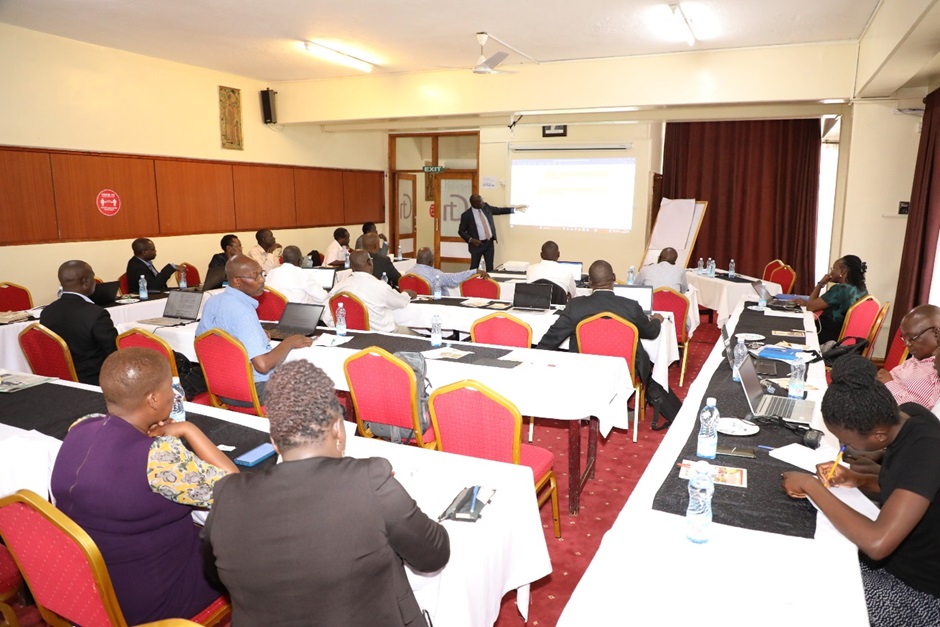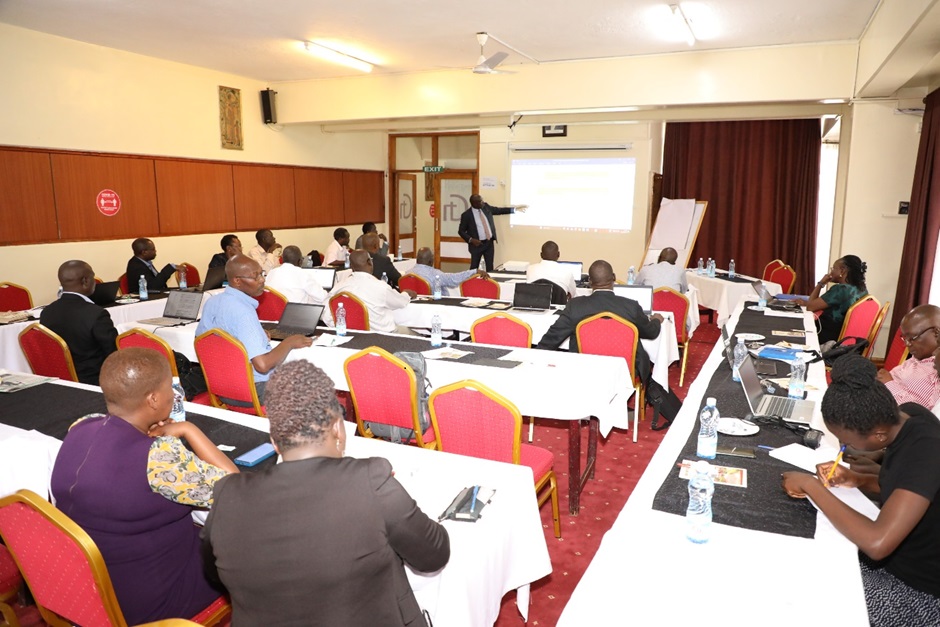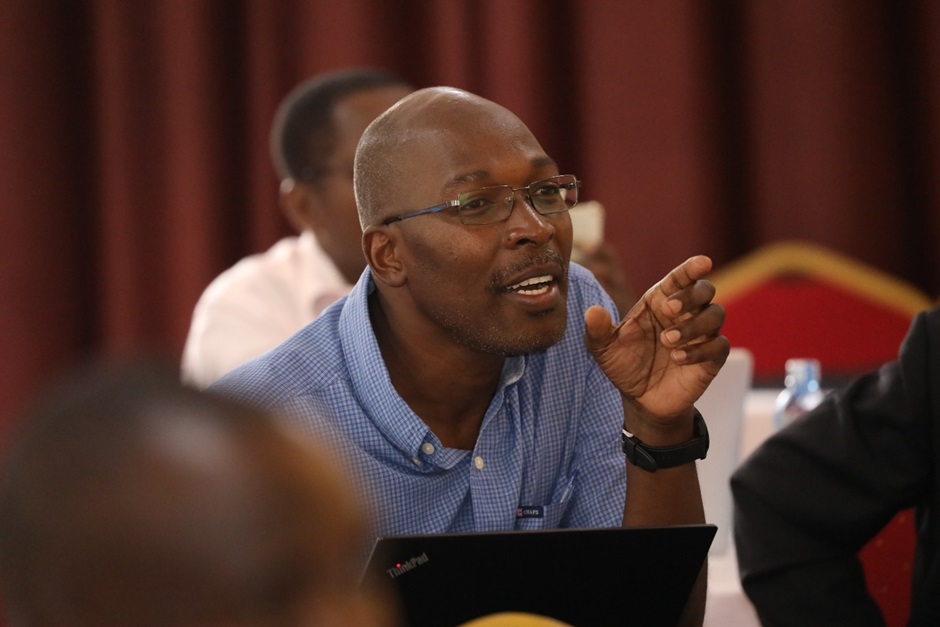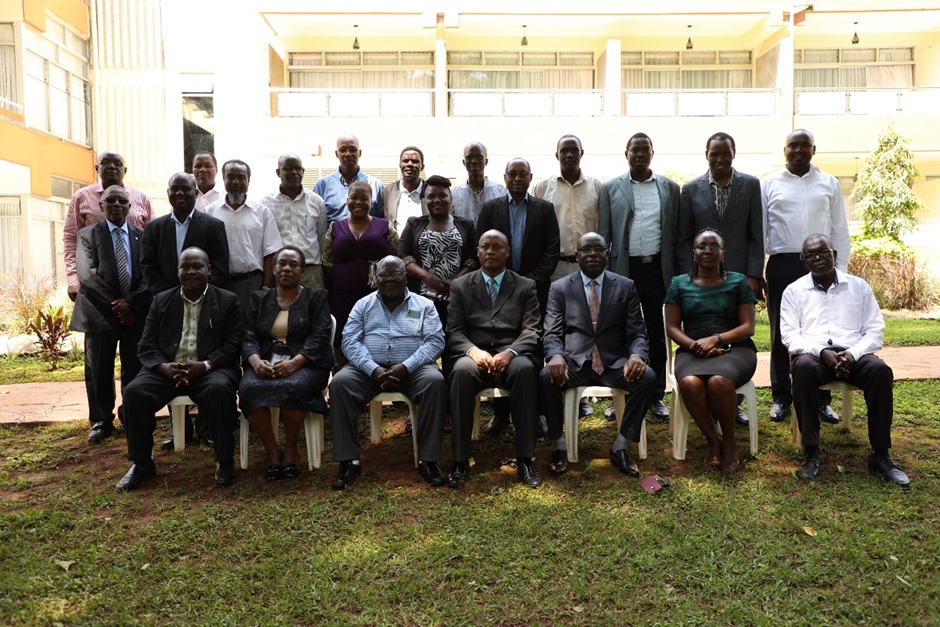Participants of the training initiative led by MMUST’s Directorate of Postgraduate Studies and Directorate of Research and Postgraduate Support.
Masinde Muliro University of Science and Technology’s (MMUST) Directorate of Postgraduate Studies and the Directorate of Research and Postgraduate Support, have conducted a transformative training initiative, aimed at raising the bar for supervision and examination standards in postgraduate education. The training, which commenced on 15th February 2024, and ended on 16th February 2024, was graced by the Deputy Vice Chancellor - Planning Research and Innovation, Prof. Charles Mutai, who was representing the Vice Chancellor, Prof. Solomon Shibairo. The notable attendees of the training included the Deans of Schools and Postgraduate Board Members, whose presence underscored the significance of the training in advancing the quality of postgraduate education at MMUST.
The participants engaged in a comprehensive review of pivotal documents such as the Manual for Postgraduate Studies, Manual for Proposals and Thesis Writing, as well as the Directorate of Postgraduate Studies Rules and Regulations. These documents serve as crucial frameworks for ensuring academic excellence in postgraduate pursuits.
Speaking during the official opening of the training, Prof. Mutai emphasized the importance of this exercise as a means for the University to refine and modernize the tools it uses in postgraduate work.
“It is important that the tools we engage align seamlessly with our institutional mission and aspirations. They must serve as catalysts for realizing our vision of becoming a premier institution renowned for excellence in teaching, research, and innovation,” he said.

The Deputy Vice Chancellor - Planning Research and Innovation, Prof. Charles Mutai addressing participants during the training.
Representing the Deputy Vice Chancellor – Academic and Student Affairs, the Director Curriculum Review and Development, Prof. Judah Ndiku highlighted the rapidly evolving landscape of higher education. He underscored the vital role of continuous improvement in the quality of supervision and examination standards, emphasizing their impact on academic excellence and the competitiveness of the institution.
“By equipping our examiners with the necessary tools and knowledge, we ensure that the assessment process is fair, transparent, and reflective of the highest academic standards,” he stated.

The Director of Postgraduate Studies, Prof. Stephen Odebero guiding participants through an engaging session.
Prof. John Shiundu, Chairman of the Board of Postgraduate Studies, emphasized the Board’s indispensable role in ensuring the effectiveness of postgraduate programs. He addressed pressing issues such as the proliferation of ‘cybercafe theses’, condemning its negative impact on academic integrity.
“As a Board, we play a crucial role of ensuring the effectiveness of our postgraduate programme, which directly impacts the quality of education and calibre of graduates we produce,” remarked Prof. Shiundu.
In his presentation titled, ‘Role of Supervisors Training and Motivational Support to Ensure Quality Mentorship of Postgraduate Students’, Prof. Moses Poipoi, Dean School of Education stressed on the pivotal role of supervisors in guiding and nurturing the next generation of researchers. He also spoke about the importance of investing in supervisor training and professional development to foster a culture of academic excellence.

Prof. Edward Neyole, an Associate Professor of Environmental Studies making a point during the training.
Key topics including ‘Emerging Issues- Postgraduate Rules and Regulations’, ‘Emerging Trends in Research’, ‘Key Mistakes in Postgraduate Supervision’, ‘Financing Postgraduate Training and Infrastructure’, ‘Mentoring Postgraduate Supervision for Innovation and Patenting: Link between PRI and Postgraduate Support’, ‘Improving Post-Graduate Academic Research, Performance and Support’, were extensively discussed. Key recommendations such as development of a conflict-of-interest tool, enforcement of rules and regulations established, enhanced interaction between faculty and postgraduate students to improve areas of need, adoption of entry and exit strategies to address issues of supervisor-candidate conflicts and several others, were established to address areas of improvement.
We commend the Directorates of Postgraduate Studies as well as Research and Postgraduate Support under the leadership of Prof. Stephen Odebero and Prof. Francis Orata respectively, for organizing this essential training. Their efforts are crucial in upholding the quality and integrity of postgraduate education at MMUST, reflecting the University’s commitment to excellence in Science, Technology, and Innovation.
By Caren Nekesa
Photos by Shiundu Masafu





